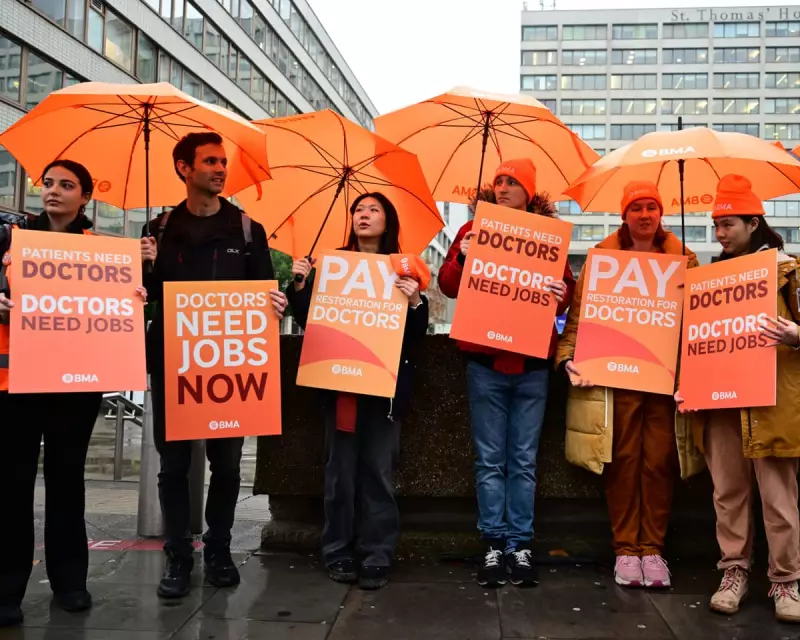
Junior doctors across England have launched their thirteenth round of industrial action, marking another chapter in one of the longest-running disputes in NHS history. The latest strike began on Friday 14th November 2025, with medics gathering outside St Thomas' Hospital in London and other hospitals nationwide.
The Battle Over Pay Restoration
The core of the dispute centres on the British Medical Association's demand for full pay restoration to 2008 levels. The union argues that years of austerity-era pay rises below inflation have significantly eroded doctors' real-term earnings. Since March 2023, there have now been 50 days of strikes, causing approximately 1.5 million outpatient appointments and surgeries to be rescheduled.
Health Secretary Wes Streeting and the BMA remain fundamentally divided. While the union claims a further 26% pay increase is needed to achieve full restoration, Streeting maintains the government cannot afford this. The minister has described the latest strike action as "irresponsible and risky," while the BMA insists it's wholly justified.
Political Timeline of a Protracted Dispute
The conflict has now spanned four prime ministers since the BMA first adopted the pay restoration policy at its June 2022 conference. What began under Boris Johnson has continued through the brief tenure of Liz Truss, Rishi Sunak's government, and now Keir Starmer's administration.
Despite pay increases totalling 28.9% over three years - including 22% under Labour - inflation has undermined these gains. The current strike is scheduled to continue until 7am next Wednesday, affecting the work of approximately 70,000 junior doctors, 60,000 of whom are BMA members.
Internal Union Politics and Public Sentiment
The dispute's origins reveal significant internal dynamics within the BMA. Many younger doctors felt the union had become disconnected from their concerns, particularly following the failed 2015/16 dispute with Jeremy Hunt and what they perceived as inadequate response to below-inflation pay awards.
This discontent culminated in the 2022 conference in Brighton, where the grassroots Doctors Vote group gained substantial influence within the BMA's leadership. The group successfully pushed for a more militant approach to pay negotiations, making full pay restoration non-negotiable and endorsing indefinite strikes as the primary strategy.
Although Doctors Vote has since fragmented due to internal conflicts, their legacy continues through the current resident doctors committee leadership. Dr Jack Fletcher, who became committee chair in September, maintains the commitment to full pay restoration despite not being part of the original faction.
Expanding the Battlefield: Training Places
The dispute has recently broadened beyond pure pay concerns. The BMA has added the chronic shortage of medical specialty training places to its grievances with the government. Streeting has made two offers to expand training opportunities, but the union has rejected both as insufficient given the number of qualified doctors currently unable to secure positions.
This strategic move may help regain public sympathy, as the BMA recognises that support has waned following substantial recent pay increases. Highlighting unemployed doctors while patients struggle to access care could strengthen their negotiating position.
The BMA plans to reballot members in January when the current strike mandate expires, potentially extending industrial action into mid-2026. With both sides entrenched in their positions - the union committed to full restoration and the government citing financial constraints - there appears to be no quick resolution in sight.
As the disruption continues to affect thousands of patients and strain NHS resources, this protracted dispute shows every sign of becoming an unwelcome normality in Britain's healthcare landscape.






